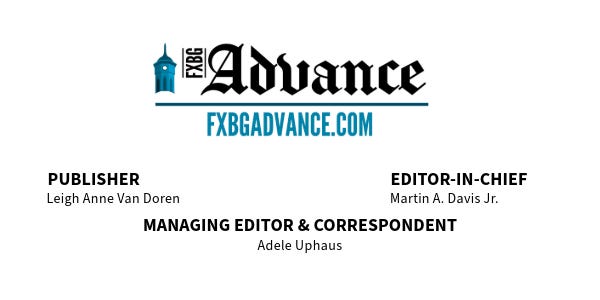
Hint: not well.
The Commonwealth Fund, the healthcare think tank, last month came out with a report comparing healthcare in the United States with nine other advanced nations, and it’s a stunner.
According to the report, “the U.S. continues to be in a class by itself in the underperformance of its healthcare sector…the only clear outlier…” where the other nine nations, unlike the U.S., “have all found a way to meet their residents’ most basic health care needs, including universal coverage.”
Unfortunately, this report is not in the least surprising, since the results detailing the failures of the American healthcare system tell the same old sorry story that goes back decades: the United States spends far more on healthcare, and gets much less in return, than all other advanced nations.
Subscribed
The countries we’re compared to are Australia, Canada, France, Germany, the Netherlands, New Zealand, Sweden, Switzerland, and the United Kingdom.
The areas where we lag include affordability; lack of primary care services; administrative burdens for both patients and providers in dealing with insurance company billing issues; shorter life expectancy; and more avoidable deaths.
We do rank high in the quality of our care—the problem is that too many people have difficulty accessing it.
Health insurance in America is about half government-based and half employer-based. There are thousands of plans, and they vary in cost and coverage. It’s a vastly complicated system, and it’s very expensive to run—we could soon be wasting a trillion healthcare dollars per year on costs that have little or nothing to do with healthcare.
How did we get here? During World War Two, when there were wage and price controls to keep the American economy stable, private employers were allowed to offer health insurance as a benefit rather than increasing wages. Over the years, these health insurance plans grew in size, and then Washington said they could transition into for-profit companies. So rather than a health insurance system being a public good supplied by the government on behalf of every citizen, it became a hugely profitable industry run largely by (and for the benefit of) the private sector. The health insurance industry business model is to make a profit, not ensure that everyone gets affordable healthcare.
The result is that nearly 30 million Americans have no health insurance, another 60+ million are “underinsured”—meaning they can’t afford to use their insurance—and 3/4 of Americans worry they won’t be able to afford to pay their medical bills if they get sick. The number of people here who die prematurely each year because they cannot afford timely medical care is in the 70,000 range. This is the opposite of every other advanced nation, where the emphasis is on making healthcare both affordable and universal.
Who is accountable for the health insurance quandary affecting too many Americans? Look no further than the people in Washington we elect to serve on our behalf. They are the folks who make the rules that we all live by. It’s tempting to blame the health insurance industry for these problems, but they’re mostly just playing the game by the rules set out by Washington politicians. And the for-profit health insurance company has a fiduciary responsibility to its stockholders to enhance profit. Making healthcare affordable and universal is up to Washington, not industry CEOs.
What’s the answer? Certainly not perpetuating the current failed profit-based health insurance system. Forget about “increased competition” or “building on the Affordable Care Act” (Obamacare).
What we need is a system that accomplishes what every other advanced nation already has: healthcare that is both affordable and universal. One that puts the interests of patients first. One that is easy (and much less costly) to administer. A system that pays 100% of the cost for all necessary medical care (so there are no out-of-pocket expenses). A system where healthcare contributions are based mostly on income—so they are truly affordable for everyone. One where the paperwork for individuals is minimal. One where there’s no need to fight over prior authorizations or outright denials of care that harm patients but improve the bottom line of a for-profit health insurance company.
A single payer system such as Medicare for All would work best. Canadians love their SPS—despite some significant drawbacks, it’s even more popular than hockey.
Polls here show real support for such a system—7/10 Americans approve.
The problem? 7/10 Washington politicians don’t approve.
Until the folks in Washington start representing our best interests rather than those of wealthy industries that pack a huge political punch, we will just have to put up with care that is too unaffordable for too many— and the tens of thousands of unnecessary deaths each year.





Local Obituaries
To view local obituaries or to send a note to family and loved ones, please visit the link that follows.

Support Award-winning, Locally Focused Journalism

$8 a month supports great journalism
The FXBG Advance cuts through the talking points to deliver both incisive and informative news about the issues, people, and organizations that daily affect your life. And we do it in a multi-partisan format that has no equal in this region. Over the past year, our reporting was:
- First to report on a Spotsylvania School teacher arrested for bringing drugs onto campus.
- First to report on new facility fees leveled by MWHC on patient bills.
- First to detail controversial traffic numbers submitted by Stafford staff on the Buc-ee’s project
- Provided extensive coverage of the cellphone bans that are sweeping local school districts.
- And so much more, like Clay Jones, Drew Gallagher, Hank Silverberg, and more.
For just $8 a month, you can help support top-flight journalism that puts people over policies.
Your contributions 100% support our journalists.
Help us as we continue to grow!
Support FXBG Advance for $8 a month




